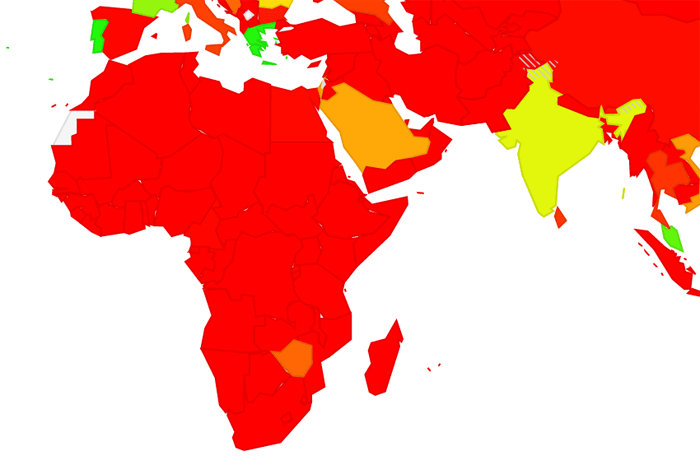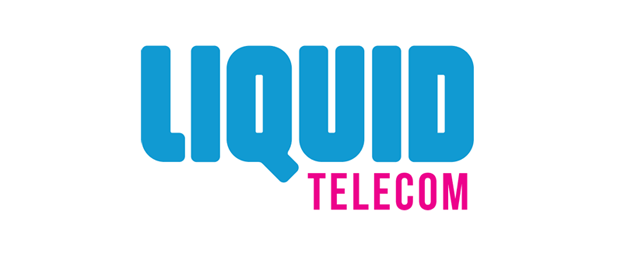Zimbabwe has become the leading country in IPv6 implementation on the continent following Liquid Telecom’s roll out of the technology to its customers an ISP subsidiary, ZOL. We spoke to Liquid Telecom Head of IP Strategy, Andrew Alston, earlier today who said that the company plans to roll out IPV6 in other countries they operate in the coming months.
ZOL customers that use fibre started getting the IPV6 technology about 2 weeks ago.

If you’re wondering what IPv6 is and why it’s a big deal, here’s a short summary to get you up to speed.
Essentially computers and mobile phones have so far used a technology called IPv4 to identify each other for communication. Each device that accesses the internet is identified using an address much the same way houses have addresses. This address is referred to in as an IP address.
IPv4 addresses are running out hence the need for a new technology that has more addresses. This is what IPv6 is. IPv4 has a limit of around 4 billion addresses where the new IPv6 has a number so hard to call we’ll just simplify to 340 billion billion billion billion.
As for why this is important, there’s an increase in the number of internet capable devices apart from the vanilla mobile phones and computers that is: Surveillance cameras, televisions, home entertainment systems, air conditioners, the list goes on and on, and hence since an individual can have more than 1 internet capable device, the IPv4 addresses are not sufficient for the foreseeable future.
Alston explained to us that it comes down to future proofing their network and users because IPv4 will certainly not be compatible with new technologies that are designed to with IPv6. This is increasingly the case. While currently most technologies are designed to work on both IPv4 and IPv6, IPv4 users are one day going to fail to access IPv6 only services.
There’s been a global push for a migration of all networks to IPv6. You can see where countries in Africa are right now in the map above. All the whole world here. We covered local efforts by POTRAZ to push for this migration. Those efforts have resulted in a migration strategy document which Alston described as “probably the most comprehensive government v6 strategy document I have ever seen.”
As for how Zimbabwe got to be the leader in the IPv6 deployment, Alston tells us that Liquid Telecom has a large home fiber subscriber base, specifically ZOL is the largest FTTH provider within the Liquid network. They have however already started rolling IPv6 out in Kenya and Zambia should start in a couple of weeks.
“We are busy engaging in growing the home user market base in our other countries of operations. We want IPv6 down to the end user everywhere we are,” Alston said. He expects all their our home fibre subscribers across the continent to be IPv6 enabled by the end of the year.
On the corporate side and for mobile operators and ISPs that they wholesale internet to, Alston says they are already ready to provide IPv6 across the continent to any customer that asks for it.

22 comments
IPv4 addresses are not going to be running out any time soon! Why? Becaise they ran out a while back.
I recently got a /22 ip range and /21 is now available if you register for the first time.
And yes Afrinic still have some ipv4 to give out on per application basis
IPv6 is not going to be driven by any government policy, but by user needs. Most countries who are in the top league of ipv6 penetration like South Korea are there because of public demand and service providers trying to meet their demands.
This is due to high smartphone consumption and high speed internet availability.
We do not have those conditions to drive ipv6 here. Our economy is shrinking, we do not have even a single gadget manufacturer here to start internet of things.
Well done Zol, but its one of those things people are going to quickly forget as ipv6 doesnt bring cheap or fast internet
Totally agree….they maybe leading but considering the benefits from both an end user and ISP ..there isnt much. I know ISPs in countries where they have demand for IPv6 who are still on IPv4 and if needed use translation from v4 to v6 or even use CGNAT. Dont get me wrong its a good thing but are companies and service providers about to start changing their infrastructure yet…for what…nothing is broken so no fix is needed…
Can someone explain how a normal internet user is affected by the implementation of ipv4 & ipv6 – what changes on the side of the user
right now nothing changes… however in the future when IPv4 space has run out and someone puts a service online thats V6 only then you will only be able to access it if you have working IPv6 – who knows when that might but, would you rather an ISP implemented it right in good time, or last minute because they have to?
most mistakes get made when things are rushed and not carefully planned
most routers in Service Provider networks could still do v4 to v6 and v6 to v4 translations and most NICs would presumably have both v4 and v6 addresses attached to them…yes maybe years ahead but for now…not really an issue
transition/translation protocols are not there for efficient internet – they are there to serve a purpose transition only. transition gateways potentially need a large amount of processing power depending on number of customers and traffic being done, while it might be feasible where speeds limited by access networks (ie mobile operators) it probably isn’t where the access network isn’t the limit (ie fibre providers)
Agree….its not a viable/long term solution but if there is no immediate need for v6 then transition and translation maybe the way to go in comparison to just a big bang sop and start.
My point here was that usually you would need Hardware, software upgrades and a possible re-design of the network.
Basically, the only thing that will change is that you will have both an IPv4 and an IPv6 address on your PC/Device. If you have working IPv6 and you attempt to browse to http://ipv6.google.com it will work – if your IPv6 doesn’t work you won’t be able to get there. If you are on http://ipv6.google.com and you type “what is my ip” it should show you what your Ipv6 address is.
You can also go to http://ipv6-test.com/speedtest/ and run a test from there (I suggest you choosing one of the European servers) and it will do a test that will compare your IPv4 speed versus your IPv6 speed – and tell you if your IPv6 is fully functional
IPv6 speedtest vs IPv4 http://img2.ipv6-test.com/speedtest/result/2016/10/07/65d0b1ffea1d9fdfb69d062c6da94b33.png
I do not think we will get the benefit of ipv6 straight away as the networks are geared for ipv4. I also do not think ISPs are going to do a folk lift upgrade of their infrastructure.
you mean like telone or others?
it ultimately depends on how old their hardware is to safe if it’s needing to be changed out or not – the point is someone needs to lead the way.
IPv6 is unfortunately a chicken and egg scenario that most other people have just chosen to ignore and stick there head in the sand. it will only take ISP’s and content providers to actually pull their collective fingers out for this to start rolling properly
Is it the whole Zol network you have upgraded or just the fiber bit?
even in ISPs a lot will have to change simmple things like compatibility between simple Routing Protocols like OSPF/ISIS and v6 will mean a lot of changes but i presume for them to roll it out they have thoroighly done their testing but im still failing to understand what the drive for this is, yes IPV4 addresses have/are running out …is it cheaper to buy v6 blocks?
http://bgp.potaroo.net/v6/as2.0/
it doesn’t cost generally for V6 space, there is a growing grey market for v4 space and that price is increasing rapidly
its anyone’s guess about when V4 space will run out properly but it would be bad planning for any ISP or carrier not to be planning for this inevitability, i mean its been coming for 20 years+ already
routing protocols aren’t different between v4/v6 fundamentally – however how you might route IPv6 space is differently and how you might plan your addressing scheme certainly – especially as now you are not so worried about space but about where you can make aggregations and optimise routing
I agree and understand about planning for the inevitable and completely makes sense. I work for the biggest ISP in the UK and we only implemented v6 last year mainly due to demand and new services that we were offering thus the reason i was asking if there was any driver for this in Zim or was it simply because of future planning.
Most networks i have seen would be running OSPFv2 or ISIS as an IGP, v6 works is not compatible with OSPFv2 but v3 (additional LSA types to carry prefixes, authentication, packet/header formats) and for ISIS there are a number of fundamental differences. Did some testing for OSPF and v6 a while ago and trust me its not the same beast but then again like i said for you to be rolling out im sure you have already done thorough testing. We have an MPLS Core with more than 60 P and PEs spanning across different AS’s so you can imagine the changes that would be required for that (already done).
Security, probably one of the biggest aspects as well, again found this the hard way – some firewall vendors or at least ones we tested with were not ready for v6 in a way that we were…all this would have been considered.
Most content providers and caching services are offering both, look at akamai, , netflix and the usual
right now just fibre – we are looking at next steps, both within ZW and our wider group, some networks/platforms are more readily able to be switched to V6 dual stack and some not and might need a more involved approach, like with any network ultimately
The Access method shouldnt really matter though should it as long as the CPE can support it
thats half the issue with legacy access technologies 🙂
Ipv4 addesses ran out a while back hence the use of pvt ip address ranges 192.168.x.for most devices sitting behind routers.l dont see the need for dedicated public ip address for most devices. Its more important for us in 3rd world internet countries to concentrate on IT penetration thru cheaper devices & data charges.